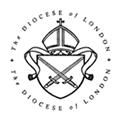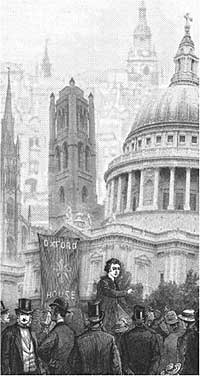Historical themes in the Diocese of London: Tracing your Family History
Church records are an extremely valuable source of information for family historians and are often the only way you can trace your family history. The reason for this is that the Government only began to register births, marriages and deaths in 1837. Before that family history records consisted mainly of the records of baptisms, marriages and burials held at each parish in parish registers and these are the main source of information for establishing births, marriages and deaths.
Looking into your Family history
What is in my local Church?
Look around the church and churchyard – you’ll see an often overlooked source of family history in the memorials in churches and churchyards – these often contain useful family history – simply take a look around and see what’s there.
Your local church will also hold current parish registers and depending on the size of the parish they may contain information up to 100 years old. Ask your clergyman or woman if you want to research these recent registers. To go back further than the information your local church holds you’ll need to go to your local Record Office.
What is in my Local Record Office and where do I find it?
Older parish registers are usually held in local or county record offices. For Parishes in the Diocese of London their parish registers will most likely be held at the London Metropolitan Archives, the Guildhall or Westminster City Archives. Some of these are now being digitised by commercial companies which will mean that it will be possible to search the registers online but there are usually charges for viewing and printing copies of entries. To check which archive will hold the older registers for your parish check with the Record Office or consult a guides such as the "Phillimore Atlas and Index of Parish Registers" by C Humphrey-Smith (3rd Ed., Phillimore, 2002).
What records does the Government hold and where do I find them?
From 1837 onwards central registration of all births, marriages and deaths began and records from this point onwards can be accessed through the Directgov website, which contains full details of the records held, how to search for them and how to order copies. Physical copies of the indexes are held at The National Archives at Kew and at the Westminster City Archives. The General Register Office provides ordering facilities for certificates and advice on research.
What else can I find? – Marriages & Wills
Whilst marriages usually took place following the reading of banns at the local church, they could also be by "licence". If the marriage you are trying to trace might have been by licence there are a number of possible sources. These are well covered by Jeremy Gibson's "Bishops Transcripts and Marriage Licences, Bonds and Allegations: a Guide to their Locations and Indexes". (Federation of Family History Societies, 2001).
Wills dating from prior to 1858 are lodged in a variety of locations so it is advisable to start by consulting one of the many reference guides to the subject such as "Wills and their Whereabouts" by A J Camp (London, 1974).
From 1858 wills were also held centrally, with the establishment of the Court of Divorce, Probate & Admiralty. Information and advice about researching wills can also be accessed via The National Archives website.
I think my ancestor might have been an Anglican Clergyman – what can I find?
If your ancestor was an Anglican clergyman the source guide on the Lambeth Palace Library site gives an excellent and detailed introduction to sources for tracing clergy in the Church of England.
Research
For the beginner taking their first steps in family history or genealogy the GENUKI website, the BBC Guide to family history, The National Archives, or the Society of Genealogists websites are all good starting points. There are also a great many books on the topic, such as "Smart Family History" by G Swinefield (The National Archives, 2005) or "Trace your Family Tree: Advice and information for taking your first steps in genealogy" (Society of Genealogists, 2004).
"Phillimore Atlas and Index of Parish Registers" by C Humphrey-Smith (3rd Ed., Phillimore, 2002) gives details of which record offices hold which parish registers.
"Bishops Transcripts and Marriage Licences, Bonds and Allegations: a Guide to their Locations and Indexes". (Federation of Family History Societies, 2001) gives details to help you track down information on marriages.
"Wills and their Whereabouts" by A J Camp (London, 1974), gives details on tracking down wills






